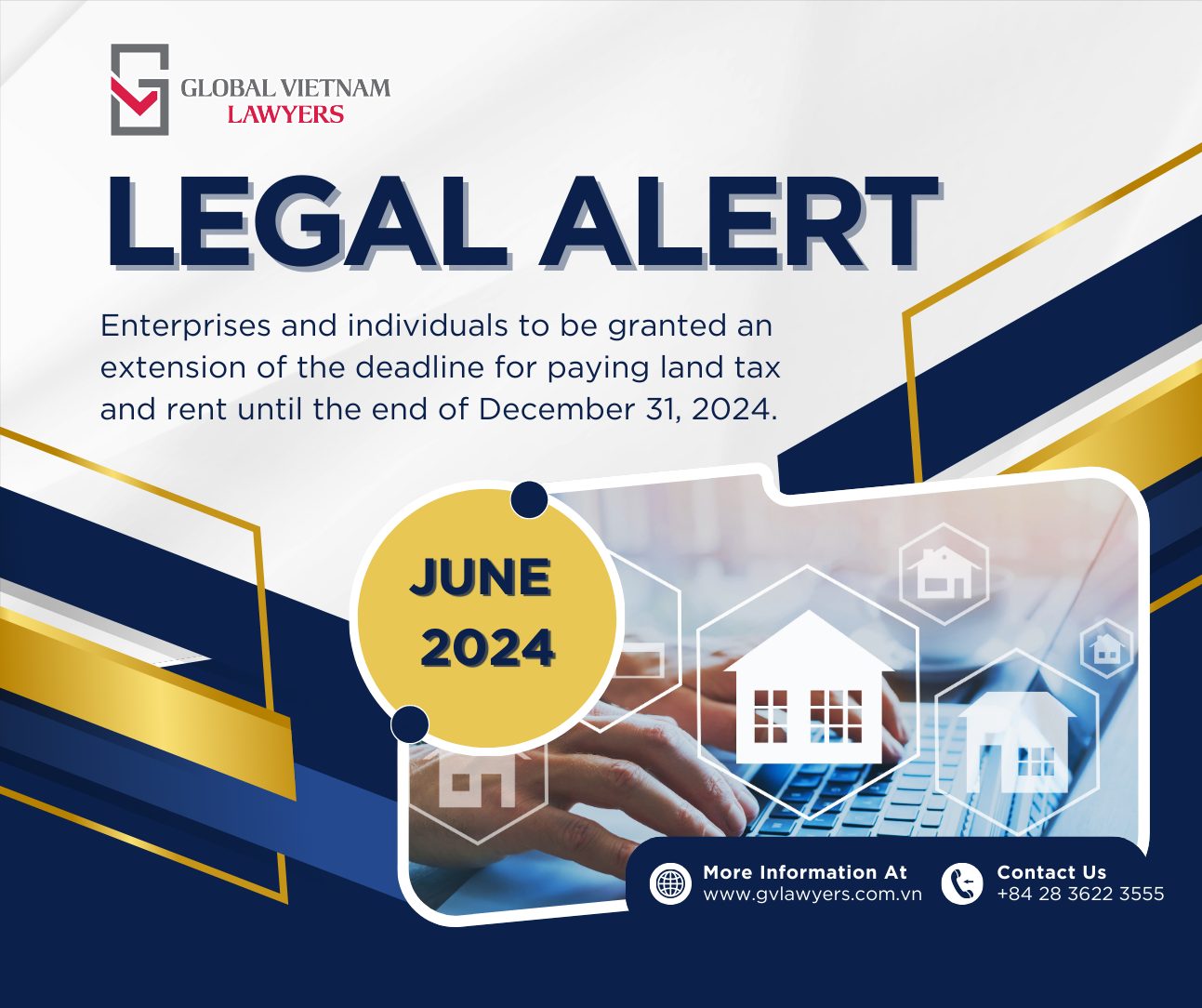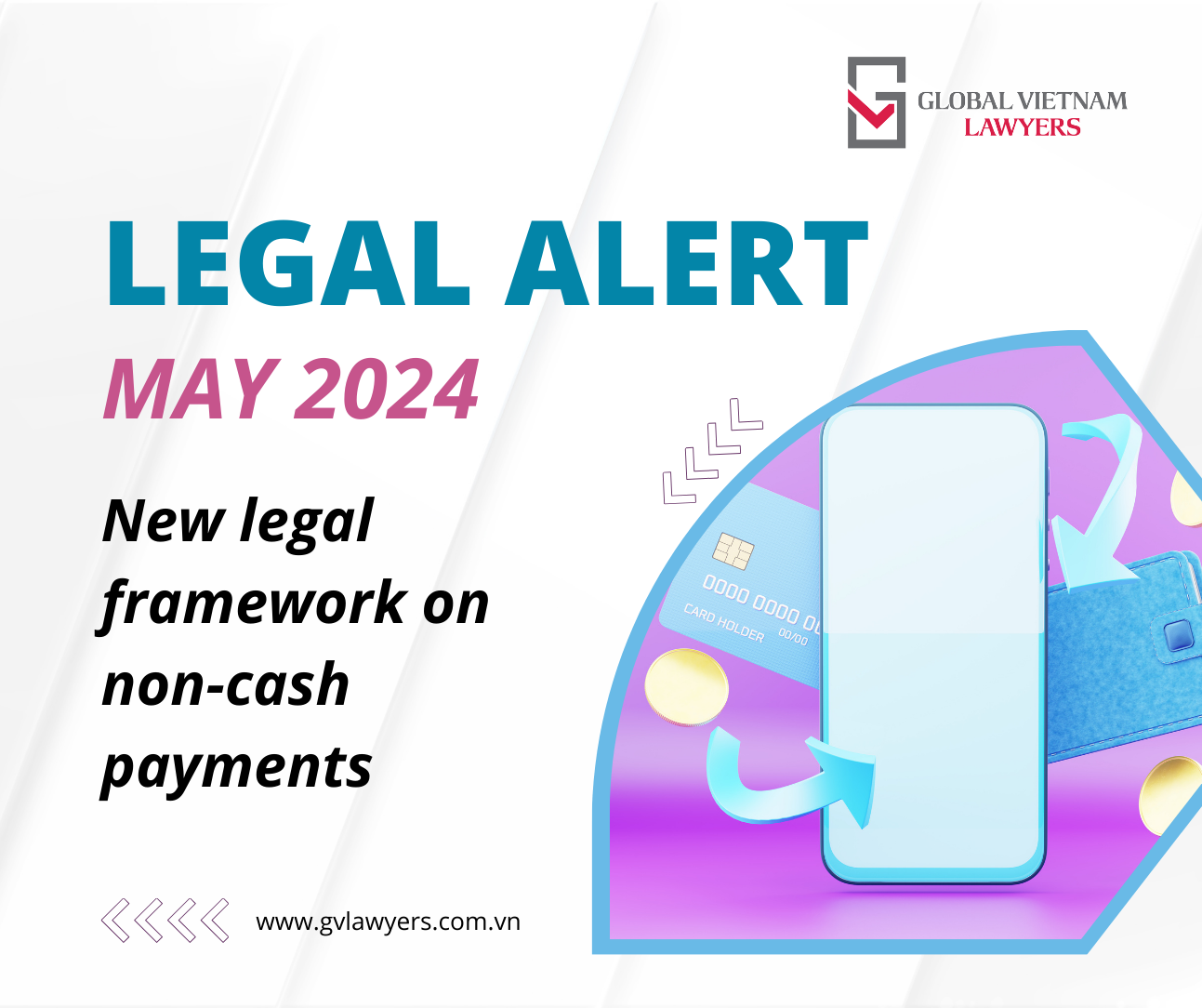On 18/1/2024, at the 5th Extraordinary Session, the National Assembly passed the Law on Land 2024 (“Law on Land 2024”) with 16 chapters and 260 articles, will take effect from 1/1/2025, except for (i) Article 190 and Article 248 of this Law taking effect from 1/4/2024, (ii) the preparation and approval of land use planning will continue to be implemented as prescribed by Resolution No. 61/2022/QH15 dated 16/6/2022 of the National Assembly, and (iii) Article 60.9 of this Law taking effect from the date Resolution No. 61/2022/QH15 expires. The following is a summary of some highlights that have a direct impact on enterprises, especially real estate enterprises.
1. Rent land may be converted from one-time payment to annual payment
Article 56 of the current Law on Land 2013 (“Law on Land 2013”) only regulates cases where the State leases land with annual land rent or a one-time land rent for the entire lease period without providing official regulations for land tenants to switch from one-time payment to annual payment.
Article 30.2 of the Law on Land 2024 stipulates: “ For economic organisations, individuals, Vietnamese expatriates, and economic organisations with foreign investment capital being leased land by the State with land rent collected once for the entire lease period, you can choose to switch to a land lease with annual land rent payments. Land rent payment is deducted from the annual land rent payable as prescribed by the Government.” It can be seen that the above regulations seemingly create flexibility for land users when converting from one-time land lease payment to annual land lease payment. However, when an enterprise switches to the form of land lease with annual land rent payment, the one-time land rent for the entire lease period (corresponding to the unused lease period) be refunded to the enterprise?
The regulation that “Paid land rent is deducted from the annual land rent payable” can be understood as the paid land rent is still retained by the State (without refunding to the enterprise) to gradually offset annual land use payments that must be paid for the remaining lease term. If so, the enterprise may lose its flexible cash flow mechanism for its business plan.
2. Remove regulations on land use term in case of buyers of housings attached to land use rights being allowed to use land with a long-term stability (as stipulated by the law on Land for limited use)
According to Article 126.3 of the current Law on Land 2013 (relating to land for limited use), the term of land allocation or land lease to implement investment projects must not exceed 50 years, for some areas with extremely difficult socio-economic conditions, the term of land allocation or land lease will not exceed 70 years; for housing business projects for sale or for sale combined with rental or for lease purchase, the time limit for handing over land to the investor is determined according to the term of the project; buyers of housings attached to land use rights may use the land with a long-term stability.
However, Article 172.1(c) of the Law on Land 2024 (relating to land for fixed-term use) only stipulates that the land use term for implementing investment projects is not more than 50 years (or 70 years for projects with an operating term of over 50 years according to the Law on Investment), and removed the content that “buyers of housings attached to land use rights may use land with a long-term stability in the clause on the Land used for a limited period of time.
In addition, Article 148.6 of the Land Law 2024 (relating to issuance of Certificates of land use rights and ownership of assets attached to land for residential properties) stipulates: “In case the project has mixed purposes as stipulated by law and established on residential land, a Certificate of land use rights and ownership of land-attached assets will be issued in favour of said assets that are construction items or the entire construction; the land use term is stable and long-term.” Thus, whether can this regulation be implicitly understood that buyers of housings attached to land use rights in a housing business project may have the right to long-term stable land use?
3. Land fund for commercial housing projects will be limited
To obtain land use rights to implement a commercial housing project, the investor can do so through one of two forms (a) The State recovers the land and then organises an auction, bidding for the right land use, and the investor is the winning bidder or auctioneer; or (b) the investor agrees to receive land use rights transfer from other land users.
- State plan for land recovery
For cases of land recovery for socio-economic development for national and public benefits, compared to Article 62 of the Law on Land 2013, Article 79 of the Law on Land 2024 has concretised and expanded land recovery cases to include 32 cases. Notably, this includes “the case of land recovery to implement an investment project to build an urban area with mixed service functions, synchronising technical and social infrastructure systems with housings as stipulated by the construction law for new construction or urban renovation and embellishment; rural residential area project” (according to Article 79.27 of the Law on Land 2024).
Thus, by applying this regulation, if implementing housing projects that are not large enough to meet the “urban area” criteria as stipulated by construction law and planning, the State will not recover land to organise auctions or bidding to select investors. At this time, to obtain land for project implementation, investors of small commercial housing projects only have the option of agreeing to transfer land use rights as stated below.
- Agreement on receiving transfer of land use rights
Article 73.1 of the Law on Land 2013 stipulates: “The use of land to carry out production and business projects and works does not fall under the case of land recovery by the State as specified in Article 61 and Article 62 of this Law but is consistent with the planning and land use plan approved by the competent state agency, the INVESTOR MAY RECEIVE TRANSFER, lease land use rights, and receive capital contribution in the form of land use rights as stipulated by law.” The above regulations do not limit the type of land that investors are allowed to receive transfer to implement commercial housing projects. In addition, Articles 169.1(b), 191.2 and 193.1 of the Law on Land 2013 further enable economic organisations to receive the transfer of land use rights for land types in accordance with planning and land use plan to implement investment projects, including commercial housing projects.
However, Article 23.4 of the Law on Housing 2014 (“Law on Housing 2014”) regulates the form of land use to carry out commercial housing construction investment projects including the case of “Receiving transfer of RESIDENTIAL LAND use rights as stipulated by land law to build commercial housing.” Thus, as stipulated by the Law on Housing 2014, investors only receive the transfer of RESIDENTIAL LAND to carry out commercial housing construction projects (while the Law on Land 2013 does not limit the type of land transferred).
The Law on Land 2024 has “inherited” the spirit of the Law on Housing 2014, accordingly, Article 127.1(b) of the Law on Land 2024 stipulates that investors can carry out commercial housing projects through agreements on receiving the transfer of land use rights: “In case of using land to implement a commercial housing project, there can only be an agreement on receiving the transfer of RESIDENTIAL LAND use rights.” Thus, it can be seen that the land fund that meets the conditions under the Law on Land 2024 to carry out commercial housing construction projects is increasingly limited and more difficult.
4. Expand entities with authority to resolve land disputes
According to Articles 202 and 203 of the Law on Land 2013, parties to land disputes (depending on each case) may resolve land disputes through conciliation at the grassroots level, the Court, or the competent People’s Committee.
Articles 235.1 and 236.5 of the Law on Land 2024 have added two more dispute resolution methods: Commercial Mediation and Commercial Arbitration. Thus, for disputes arising from commercial activities related to land, enterprises have more options to resolve disputes by Vietnamese Commercial Arbitration as stipulated by law on commercial arbitration or Commercial mediation as stipulated by law on commercial mediation.
5. In addition to the above points, the Law on Land 2024 also has other notable new points such as: eliminating the land price framework and the land price list will be issued annually; added conditions for auctioning land use rights to select housing project investors, in addition to other conditions, including “having a detailed planning of 1/500 organised, prepared, and approved by a competent state agency for housing projects”; Land users who do not fulfill their financial obligations regarding the land will have their land revoked; and other new regulations.









